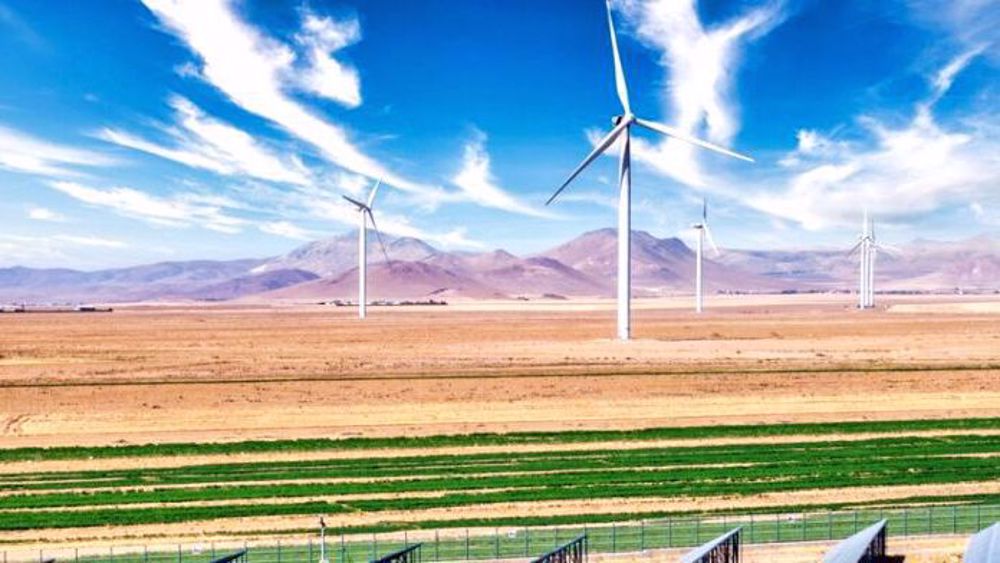Iran's Zangeneh tells countries not to comply with US sanctions
Iran's Minister of Petroleum Bijan Zanganeh says US sanctions against Tehran are “fully illegal,” calling on countries during a visit to Baghdad not to comply with them.
"We believe that we should not comply with the illegal sanctions against Iran," he said at a joint conference with his Iraqi counterpart Thamer al-Ghadhban on Thursday.
Iraq relies heavily on Iranian gas to feed its power stations, importing roughly 1.5 billion standard cubic feet per day via pipelines in the south and east.
Iraq has extensive trade ties with Iran, with officials saying the two neighbors have sharply increased their trade exchanges in recent months despite the US sanctions.
Iraqi Prime Minister Adel Abdul-Mahdi has said his country “will not be part of the sanctions regime, as it will not be part of aggression against any country."
Iran's Ambassador to Iraq Iraj Masjedi said last November trade between the two countries was on track to reach $8.5 billion this year, and Iran hoped to expand bilateral trade to $22 billion annually.
Last month, the US extended for 90 days a waiver granted to Iraq from sanctions against Iran but pledged to work with the country to end its dependence on Iranian natural gas.
The Trump administration reimposed sanctions on Iran’s energy exports in November, but has granted waivers to several buyers provided that they reduce their liftings and find new sources.
Amir Hossein Zamaninia, Iran’s deputy oil minister for trade and international affairs, said this month that Tehran has found new customers for its oil in spite of the US sanctions.
“Despite US pressures on Iranian oil market, the number of potential buyers of Iranian oil has significantly increased due to a competitive market, greed and pursuit of more profit,” he said without naming them.
Zanganeh also stressed on Thursday that Iran would not discuss the volume or destination of its oil exports while it remained under US sanctions.
The sanctions imposed in November to target Iran's lifelines in the oil, energy and shipping sectors have led to a drop by several hundred thousand barrels per day in oil exports.
Meanwhile, Iraq has moved in to fill the vacuum from Iranian cuts in oil exports because the Arab country's grades are similar to Iran's.
In India where major refineries are adjusted to Iranian grade, Iraq replaced Saudi Arabia last August as the top oil supplier after imports of Iranian oil fell by a third.
Both Iraq and Saudi Arabia as well as Russia dashed to ramp up oil production in the run-up to an early November deadline set by US President Donald Trump to sanction Iran's oil sector, leading to a collapse in prices.
Baghdad has been averse to cutting production, with Ghadhban telling media in late October that pumping more oil was a top priority for the country of 38 million.
On Thursday, Ghadhban said a decline in global oil prices had stopped and that he expected them to rise gradually.
He said his discussions with Zanganeh had touched on energy issues, describing mutual economic and trade relations as “good and expansive,” but that they had not yet reached an agreement to develop joint oilfields.
Zanganeh said, “We have discussed today how to improve cooperation with Iraq on different aspects, especially on oil issues.”
VIDEO | Lebanon commemorates martyrdom anniversary of General Soleimani
VIDEO | Massive protest held in Cuba to condemn US military operation in Venezuela
US Democrats float retaliation over Trump’s ‘insane’ Venezuela aggression
Iranian badminton star set to make history: Why Soraya Aghaei’s IOC nomination matters
VIDEO | Tunisians commemorate martyred resistance leaders
How global cultural memory lifts veil on less-known aspects of Gen. Soleimani’s personality
‘Act of war’: New York mayor slams US aggression against Venezuela
VIDEO | Shamima Begum appeals loss of UK citizenship














 This makes it easy to access the Press TV website
This makes it easy to access the Press TV website